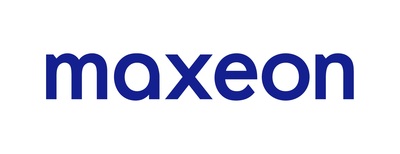Press Release
Field testing shows new Maxeon 7 IBC cells exhibit 70% lower average temperature rise in partial shading compared to competing technologies
SINGAPORE, June 13, 2024 /PRNewswire/ -- Maxeon Solar Technologies, Ltd. (NASDAQ: MAXN), a global leader in solar innovation and channels, has extended its technology leadership with published results confirming the resilience of its Maxeon Interdigitated Back Contact (IBC) panels against damaging hotspots. Hotspots are concentrated areas of heat energy that predominantly result from shaded or cracked solar cells. In a white paper released today, the Company shared the results of its internal research and development (R&D) study on hotspots, featuring Maxeon IBC panels including its new Maxeon 7 line, alongside a series of competing technologies comprising half-cell ribbon-based back contact, half-cell heterojunction (HJT), and half-cell front contact tunnel oxide passivated contact (TOPCon) panels.
Maxeon IBC panels provide solar customers with safer, more reliable energy that mitigates the development of extreme hotspots that can irreparably damage standard panels. Maxeon's resiliency against hotspots builds on its long history of delivering the industry's most advanced solar panels, optimizing the balance between product performance and reliability—a critical factor in being the only manufacturer to offer a comprehensive 40-year warranty on its panels.
Maxeon's engineering team carried out the competitive assessment at the company's R&D test lab in California, USA. Panels were tested first under full-sun conditions to determine the speed and severity at which hotspots can form as solar cells then become partially shaded—a state of operation that forces cells to begin converting power from surrounding cells into heat energy. Maxeon 7 IBC panels were found to mitigate the long-term degradation risk of panel materials by better minimizing that heat build-up in shaded cells—staying an average of 67 °C (153 °F) cooler than the ribbon-based back contact, HJT and TOPCon technologies tested.
Additionally, when subjected to simulated bypass diode failure—the primary defense mechanism of standard solar panels against hotspots—the patented electrical architecture of the Maxeon IBC cell continued to limit heat build-up in the shaded cells. As a result, Maxeon IBC panels were inherently protected from the severe backsheet discoloration, bubbling, and burning that was witnessed in the standard ribbon-based back contact, HJT, and TOPCon panels under the same test conditions. As competitive technologies rapidly spiraled toward complete panel failure, Maxeon 7 IBC panels maintained a stable temperature in the shaded cell, even without the protection of the bypass diode.
"We've spent nearly 40 years refining the patented cell and panel design of our proprietary Maxeon IBC panel technology to maximize reliability and energy production—both critical factors in lowering the levelized cost of energy (LCOE) for customers around the world," said Matt Dawson, Maxeon's Chief Technology Officer. "The hotspot resilience of the Maxeon IBC panel is just another way we contribute to a longer-lasting, more durable panel that facilitates superior lifetime energy output for solar customers."
This sentiment was echoed in a recent third-party study that examined the temperature-related effects of shadow-induced hotspots, titled "The effect of partial shading on the reliability of photovoltaic modules in the built-environment."
The study found that based on the characteristics of IBC cells, including diode functionality, uniform heating, and lower breakdown voltage, IBC panels like Maxeon 7 exhibit more favorable performance under partial shade compared to other module technologies like PERC and HJT. While the study did not extend to examining the effects of diode failure, it did note that the IBC cell temperatures under partial shade remain an average of 60 °C cooler compared to other panel technologies that exhibited hotspot temperatures over 150 °C—temperatures hot enough to induce deterioration of encapsulants and backsheets.
Maxeon encourages the industry to revisit baseline reliability testing to further minimize hotspot risk for customers. For example, current IEC bypass diode testing is designed for early life failure detection, not for longer-term wear out failures. Longer, higher temperature stress tests that can accurately assess a panel's ability to safely withstand cell cracks and reasonable shade levels in the field would ensure safer and more reliable products.
"Solar panel manufacturers should continue to pursue improved product design—technology risk shouldn't be the customer's burden to bear," Dawson continued. "We believe many of today's manufacturers are sacrificing product reliability in the pursuit of higher power and efficiency. High performance solar panels truly maximize lifetime customer value when they can match that performance with low degradation and long-term reliability."
Maxeon's white paper, "Eliminating Solar Panel Hotspot Risk with Maxeon IBC Technology" can be found here.
Maxeon will be highlighting its Maxeon 7 IBC solar panels, along with its complete portfolio of Maxeon and SunPower solar energy solutions, at Intersolar Europe in Munich, Germany, June 19-21, stand A1.350.
About Maxeon Solar Technologies
Maxeon Solar Technologies Ltd (NASDAQ: MAXN) is Powering Positive ChangeTM. Headquartered in Singapore, Maxeon leverages over 35 years of solar energy leadership and over 1,900 patents to design innovative and sustainably made solar panels and energy solutions for residential, commercial, and power plant customers. Maxeon's integrated home energy management is a flexible ecosystem of products and services, built around the award-winning Maxeon® and SunPower® brand solar panels. With a network of more than 1,700 trusted partners and distributors, and more than one million customers worldwide, the Company is a global leader in solar. For more information, visit us at www.maxeon.com, on LinkedIn and on Twitter
Forward Looking Statements
This press release contains forward-looking statements within the meaning of Section 27A of the Securities Act of 1933, as amended, and Section 21E of the Securities Exchange Act of 1934, as amended, including, but not limited to, statements regarding our technology outlook and future performance; our expectations regarding customer acceptance and demand and market traction; the Company's expectations of the success of its strategy in existing and in new markets; the Company's expectations and plans for short- and long-term strategy, including our anticipated areas of focus and investment, product and technology focus. These forward-looking statements are based on our current assumptions, expectations and beliefs and involve substantial risks and uncertainties that may cause results, performance, or achievement to materially differ from those expressed or implied by these forward-looking statements. A detailed discussion of these factors and other risks that affect our business is included in filings we make with the Securities and Exchange Commission ("SEC") from time to time, including our most recent report on Form 20-F, particularly under the heading "Item 3.D. Risk Factors." Copies of these filings are available online from the SEC or on the Financials & Filings section of our Investor Relations website at https://corp.maxeon.com/financials-filings/sec-filings. All forward-looking statements in this press release are based on information currently available to us, and we assume no obligation to update these forward-looking statements in light of new information or future events.
©2024 Maxeon Solar Technologies, Ltd. All Rights Reserved. MAXEON is a registered trademark of Maxeon Solar Technologies, Ltd. Visit https://corp.maxeon.com/trademarks for more information.
SOURCE Maxeon Solar Technologies, Ltd.

